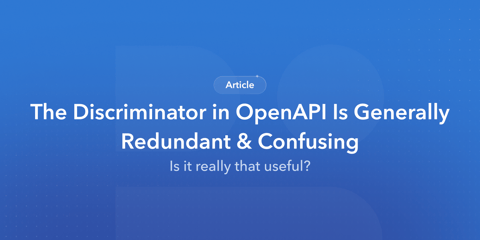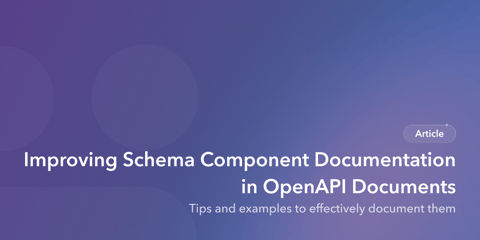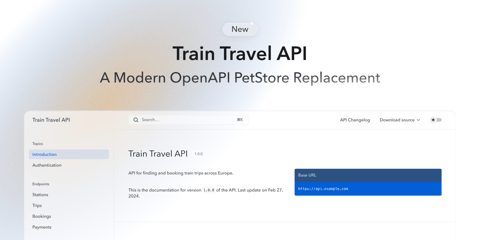Don’t Repeat Yourself. Be DRY! Anyone who ever had to manually correct thousand of flyers printed for an event, with an obvious typo in date or location, could confirm it. It would have been easier to review the original file before running the presses.
Every developer knows this rule (or should, at least).
Asserting that code should be easy to change is akin to stating that children should be polite; the statement is impossible to disagree with. (Source: Practical Object-Oriented design, Sandi Metz)
As described in this very interesting book, easy to change code can be defined with: small changes in requirements require correspondingly small changes in code.
And to do so, Single Responsibility, Don’t Repeat Yourself and Single Source of Truth are very important design patterns to develop smart applications, easy to use, easy to develop, easy to maintain, and thus improve the Developer Experience.
On this page, I’ll do my best to explain and illustrate how polymorphism can be used in API development to help achieve these big objectives. And I’m glad to share with this post a synthesis of what I learned for months about polymorphism, composition and inheritance support in API documentation, based on OpenAPI and AsyncAPI specifications.
Polymorphism concept
We don’t want to have two different behaviors for very similar objects, some parts of code and logic would be duplicated. Point about polymorphism is to extract what is common by nature, and what is specific to this instance.
For the following, we’ll need an example to illustrate all these situations.
Let’s consider a real estate agency application, whose purpose is to offer accommodations for rent. We can consider that the main object for this agency is accommodation.
But what type of accommodation?
- House, with a garden, a tiled roof, a total size, monthly rent and an address.
- Apartment, with a specific floor, maybe parking slots and elevator, a total size, monthly rent and an address.
Wait… Déjà-vu, right?
House and Apartment have many shared informations, that are related to what they are by nature: A place where people live by giving some money.
Indeed, both house and apartment have shared information: a monthly rent, an address, information about total area.
But only an apartment has a specific floor. And we don’t usually care about roof tiles unless you live in a house.

There are many solutions for implementing that into your codebase, based on your team, language, framework, architecture, opinions about typed VS object oriented language…
But as said someone wise about API:
“Do what the hell you want with your backend, but expose a simple and documented API”
Polymorphism in API
Polymorphism in API refers to the possibility to use the same endpoint for similar but different objects. Indeed, it’s a good practice to avoid different endpoints to do somehow the same action.
For example, in a request body, we should favor a single endpoint to handle requests for different data types or structures. And for a Response, it’s practical to allow a single endpoint to return different representations of a resource, based on the request made by the client.
This gives a more flexible and scalable API design, as well as reducing the amount of endpoint duplications.
In our example, without polymorphism, we could imagine two different endpoints to add a new accommodation to the real estate agency database.
POST /housePOST /apartment
Both would require a request body, with a lot of fields regarding house or apartment. But we know that there are some shared information between these two object, because they have something in common by nature: both are a place to live for (at least) humans.
A good practice here is to expose only one endpoint for this:
POST /accommodation
Regarding the data provided to the request body, result would be to create either a House, or an Apartment.
The request body for creating an apartment might look like this:
{
"type": "apartment",
"size": 17,
"rent": 707,
"address": "rue de Clery, 75002 Paris, France",
"floor": 4,
"elevator": true
}
While the request body for creating a house might look like that:
{
"type": "house",
"size": 149,
"rent": 500,
"address": "chemin du haut Pertuzou, 38160 Saint-Verand, France",
"garden_size": 5000,
"roof_tiles_type": "Clay",
"solar_panels_power": 800
}
We can see here property type is used to find out what kind of accommodation has to be created.
It can be very well documented for REST or Event-Driven APIs, we’ll come to this later.
In this way, polymorphism in REST APIs allows for a more flexible and scalable API design, as well as reducing the amount of endpoint duplications.
But API is consumed. And API consumers have to be very aware of this polymorphism. At Bump.sh, we are convinced that the best solution is to have a very nice documentation for your API.

source: https://bump.sh/demo/hub/support/doc/accommodation-polymorphism
Now, let’s see how to properly document polymorphic resources with OpenAPI or AsyncAPI specifications, based on JSON Schema.
Polymorphism in API documentation
JSON schema
Polymorphism is natively supported by JSON Schema, to handle schema composition.
As described in JSON schema documentation
JSON Schema includes a few keywords for combining schemas together (…) The keywords used to combine schemas are:
- allOf: (AND) Must be valid against all of the subschemas
- anyOf: (OR) Must be valid against any of the subschemas
- oneOf: (XOR) Must be valid against exactly one of the subschemas
First combinator allOf is not really concerned by this article.
Indeed, in our example, it’s difficult to imagine an accommodation being
both a house and an apartment. Currently, it can be summarized as a merge
between schemas described behind allOf list.
What is concerned by polymorphism are alternatives, anyOf (OR) or oneOf (XOR).
Now let’s see how to document alternatives, with JSON schema, in OpenAPI and AsyncAPI
specifications. Good news, since both are based on JSON schema, same rules
can be applied (except about discriminator, we’ll handle it very soon).
We could imagine an OpenAPI request body, or response content,
or even AsyncAPI message payload or headers, each schema is described with a
Schema Object. Alternatives could be inserted in a lot of places:
# OpenAPI
paths:
/accommodations:
post:
summary: Create an accommodation
requestBody:
content:
application/json:
schema:
# insert schemas alternatives here
responses:
200:
description: Accommodation has been created.
content:
application/json:
schema:
# insert schemas alternatives here
# AsyncAPI
channels:
accommodations:
subscribe:
description: Accommodation creation
message:
payload:
# insert schemas alternatives here
headers:
# insert schemas alternatives here
Next, we’ll consider the OpenAPI request body to create an accommodation. Either house, either apartment.
OpenAPI example
Please see below the complete example of POST /accommodation request body,
used for this documentation.
paths:
/accommodation:
post:
summary: Create an accommodation
description: |
Example about polymorphism in API.
This endpoint 'POST /accommodation' can be used to
create either apartment, either house.
requestBody:
content:
application/json:
schema:
oneOf:
- $ref: "#/components/schemas/House"
- $ref: "#/components/schemas/Apartment"
components:
schemas:
Accommodation:
type: object
required:
- type
- size
- monthly_rent
- address
properties:
type:
type: string
size:
type: integer
monthly_rent:
type: number
address:
type: string
Apartment:
allOf:
- $ref: "#/components/schemas/Accommodation"
- type: object
required:
- floor
properties:
floor:
type: integer
collective_heating_system:
type: boolean
elevator:
type: boolean
parking_spots:
type: integer
House:
allOf:
- $ref: "#/components/schemas/Accommodation"
- type: object
properties:
garden_size:
type: integer
description: Area, in square meters (m²).
roof_tiles_type:
type: string
description: Multiple types exist for roof tiles.
solar_panels_power:
type: integer
description: Installed photovoltaic power, in Watt (Wc). _Yes, modern house should have solar panels_
basement_size:
type: integer
Combinators anyOf or oneOf have to be used at first level,
with an array of related schemas, here House and Apartment.
Inheritance & DRY
Here, there are three different schemas listed in /components/schemas/* list:
Accommodation, with every properties shared by House and Apartment, as accommodation.Apartment, with every properties specific to an apartmentHouse, with every properties specific to a house.
Indeed, we know that both House and Apartment share a lot of details, by inheriting
from parent object Accommodation.
We can see it in each schema House and Apartment, with the merging combinator
allOf.
House has every properties from Accommodation (type, size, monthly rent, and address), and some specific house properties: garden size, roof tiles type or solar panels power… And same for Apartment.
This usage of parent object, and allOf combinator is a useful
solution to avoid code duplication here, and apply Inheritance pattern in JSON schema.
Extract title
In both OpenAPI and AsyncAPI documentation, it’s strongly recommended to avoid
inline schemas, ie to favor schemas described behind an internal reference $ref.
What is crucial is the ability to extract a title for each alternative.
With $ref, title is defined from last element of path:
$ref: "#/components/schemas/House": extracted title isHouse$ref: "#/components/schemas/Apartment": extracted title isApartment
But we can also favor to extract this title from the explicit title field, if provided in the schema object.
For example if third and very lightweight alternative accommodation was added without reference:
requestBody:
content:
application/json:
schema:
oneOf:
- $ref: "#/components/schemas/House"
- $ref: "#/components/schemas/Apartment"
- type: object
title: Yurt
required:
- type
properties:
type:
type: string
weight:
type: integer
This alternative would be named Yurt.
If we had omitted the title: Yurt attribute, Bump.sh would have to generate a title based on type and index
(here it would be 'object-2')
Discriminator
Note: for this section, every alternative has to be object, or array of objects, a schema with properties. If no properties, no discriminator.
Now’s the time to clarify this required type property, used on purpose for
every schemas inheriting from Accommodation object.
It’s a good practice to use a specific property to distinct which schema has to be used.
This can be considered as a hint for the API. If type is explicit,
there is no need for backend to validate if provided data are compliant
with House or Apartment . Indeed, it would be weird (and costly)
to detect garden_size or parking_slots and implicitly guess accommodation type.
Because this is missing in JSON schema support, both OpenAPI and AsyncAPI
have introduced a specific keyword for this, discriminator:
cf documentation:
- AsyncAPI 2.x discriminator (as String)
- OpenAPI 2.0 discriminator (as String)
- OpenAPI 3.x discriminator (as Object)
First solution is to use string format (supported by OpenAPI 2.x, aka Swagger, and AsyncAPI).
In every alternative with properties, one property is identified as the discriminator.
This property has to be required, and of course, it has to be shared between all alternatives, so
with our example, it’s relevant to use shared Accommodation schema:
Accommodation:
type: object
discriminator: type
required:
- type
- size
- monthly_rent
- address
properties:
type:
type: string
# …
Thus, correct alternative is chosen by matching provided value for type
with each alternative title:
Housevalue fortypeclarifies thatHouseschema will be usedApartmentvalue fortypeclarifies thatApartmentschema will be usedFlatvalue fortypeclarifies thatApartmentschema will… wait, what??
You read it well. Sometime, API maintainers could expect an other value instead of alternative title to ensure schemas matching.
And that’s why discriminator support is different for OpenAPI 3.1:
In this case, discriminator is an object, with two fields:
propertyName, string value of the property used as discriminatormapping, a hash to give explicit values
And in this case, it has to be defined at the same level as the combinator.
In our example:
requestBody:
content:
application/json:
schema:
oneOf:
- $ref: "#/components/schemas/House"
- $ref: "#/components/schemas/Apartment"
discriminator:
propertyName: type
mapping:
house: "#/components/schemas/House"
flat: "#/components/schemas/Apartment"
This is visible in generated documentation, where allowed value is explicitly
defined as either flat, either house.

Conclusion
Polymorphism and inheritance are essential patterns to improve your API design and avoid code duplication (no Single Source of Truth when your code is duplicated).
Both OpenAPI and AsyncAPI have nice tools to support them, you just need to choose oneOf these specifications.
I hope this post/article/guide/tutorial/page (anyOf these formats) did help you on your polymorphism in API journey.
Writing this article was not easy, but I can assure you that implementing all the support for all these polymorphism concept
in both OpenAPI and AsyncAPI was not a long, quiet river.
That’s why I’m very glad to reveal that these combinators anyOf and oneOf are now fully supported in every documentation hosted on Bump.sh, as
detailed in our changelog.
Happy polymorphism,
PS: About Single Source of Truth, Sébastien would be very happy if I could also mention here it’s what we do at Bump.sh, help API developers team to have a single source of truth for all their API contracts and avoid duplication… but that’s not the point here, sorry Seb 😉
Oh wait… I did it again?


